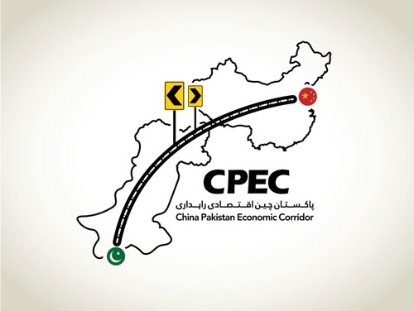Pakistan deploys new envoys in China to promote foreign investment

Pakistan has appointed new counsellors in China to promote foreign investment in industrialisation as part of the second phase of the Chinese financed economic projects in the South Asian economy.
China has been funding infrastructure development in Pakistan’s western region in order to connect it to the rest of the world since 2013. Projects on the China-Pakistan Economic Corridor (CPEC) have resulted in a network of highways and increased power generation as part of China’s Belt and Road programme.
Cooperation in the agricultural and industrial sectors is the next phase of the CPEC framework. Despite all efforts, the project is lagging behind schedule, with the Pakistani government emphasising its willingness to accept investment from anywhere in the world, not just China.
The appointment of new emissaries in China is also a step toward informing investors about the economic opportunities in Pakistan’s industrial and agricultural sectors, which are currently lacking in modern applications that would allow them to realise their full potential.
“To further Pakistan’s investment objectives of industrial cooperation with China, BOI [Board of Investment] has appointed eight honorary investment counselors in different regions of China. They are people from business and other related fields and will play an imperative role in apprising the Chinese business fraternity about potential joint ventures, other investment opportunities and the lucrative incentives offered to foreign investors in Pakistan,” Adviser to Prime Minister for Commerce and Investment Razak Dawood wrote on Twitter. “These appointments will enhance the Pakistan-China investment portfolio that will add to the economic uplift of the country,” Dawood added.
The industrial cooperation is supposed to compensate for the deindustrialisation caused by the bilateral free trade agreement struck in 2007, and it is also expected to transfer expertise if the terms are properly defined and implemented. The recently updated free trade agreement has resulted in an increase in Pakistan’s trade deficit, despite the fact that its economy is far smaller than China’s adventurous and prolific manufacturing capabilities. One of the causes was that merchants were uninformed of the benefits and items that could be eligible for incentives.
In the aftermath of a significant power shortage, the $60 billion CPEC focused primarily on the development of roads, highways, and power plants to maintain energy security. A number of power projects have converted the country from a power-deficient to an energy-surplus destination in the last few years. The CPEC architecture called for a production capacity of 10,000 megawatts. After early harvest projects, special economic zones are the next component of the CPEC. Initially, 27 zones were planned to be established. The total number of people was now down to nine.


